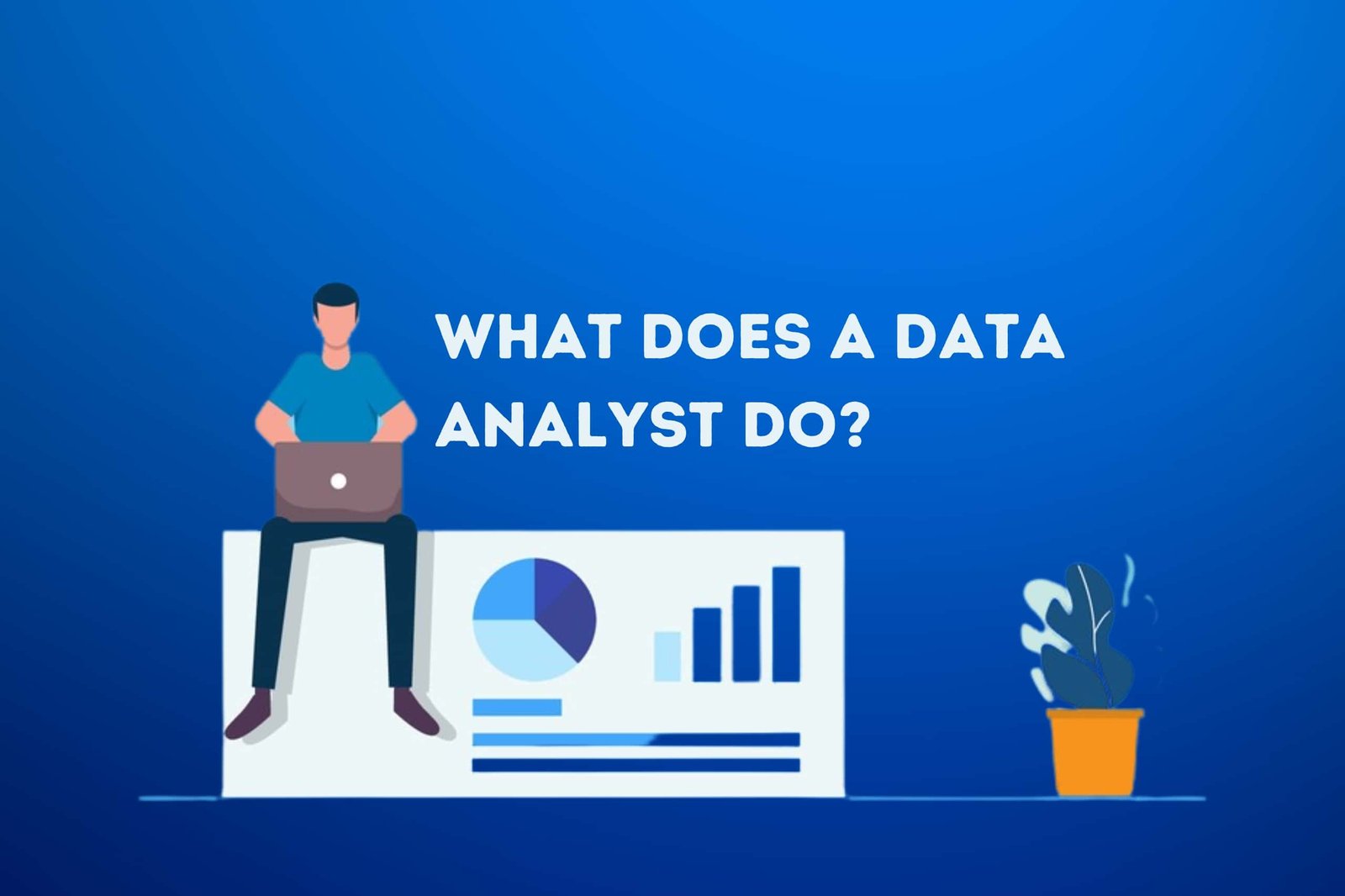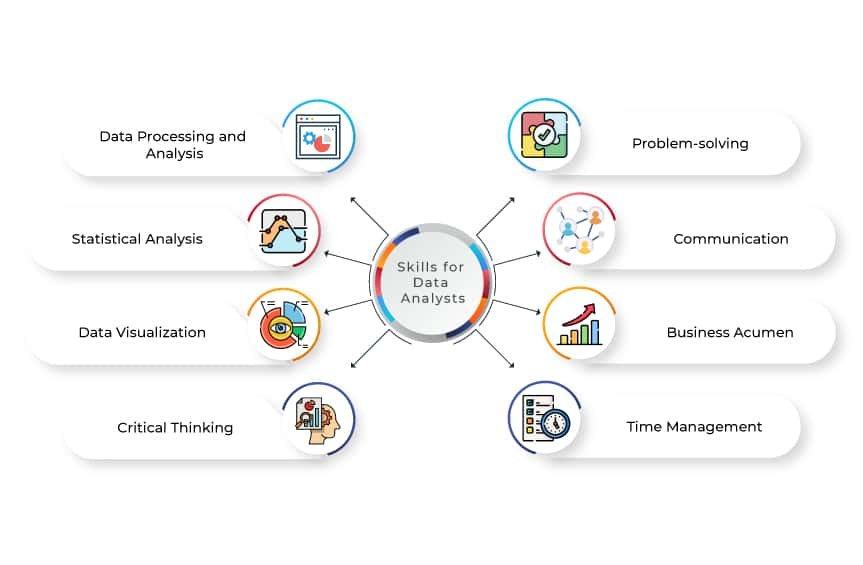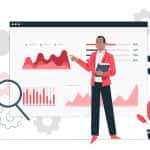As the world is becoming data-driven, we are witnessing a massive rise in its application across the industry spectrum. Data Analysts play an integral role in implementing their analysis. Thus helping the organization strategize its future propositions. Eventually, making the business more productive and profitable.
Owing to the growing penetration of data-based decision-making, there will be a 45% rise in the demand for analytics roles in India. A similar pattern is visible in the global market as well. Hence, it has become one of the most progressive career opportunities. If you, too, are looking forward to making a career in this domain, this blog will run you through the different aspects related to the Data Analyst job profession.
What Does a Data Analyst Do?
A Data Analyst collects, processes, and performs statistical analyses on large datasets. They use various software tools to extract meaningful insights and trends from the data. And then, they present this insight as reports, dashboards, and visualizations.
What is The Role of a Data Analyst?
The Data Analyst’s roles and responsibilities include the following:
- Gathering and Cleaning data: One of the KRAs of a Data Analyst is to collect the data from different sources, clean it and structure it in a form that ensures accurate results.
- Analyzing Data: The Data Analyst uses statistical tools and techniques to analyze the data and identify trends, patterns, and insights.
- Creating Reports and Visualizations: Another area of work is to create reports, dashboards and visualizations that make results and inferences more comprehensible.
- Making Recommendations: Based on the analysis and insights, the Data Analyst makes recommendations. Thus, helping businesses or organizations take informed decisions.
- Collaborating with Stakeholders: The Data Analyst works closely with stakeholders such as managers, executives, and other team members. It ensures seamless integration of data insights in the decision-making processes.
Essential Skills for Data Analysts:
Data analysis is a complex field that requires a combination of technical and soft skills. Here are some essential skills for Data Analysts:
- Data Processing and Analysis: Data Analysts should have strong data processing, cleaning, and analysis skills. They should be proficient in software tools such as Excel and SQL and programming languages such as R and Python.
- Statistical Analysis: Data Analysts must be familiar with statistical concepts such as probability, hypothesis testing, and regression analysis to analyze and interpret data accurately.
- Data Visualization: Data Analysts should be able to create clear and concise visualizations to communicate their findings effectively. They should have expertise in tools like Tableau and Power BI, and Python libraries like Matplotlib and Seaborn.
- Critical Thinking: Data Analysts should be able to analyze and interpret data critically and objectively. This gives more precise and unbiased outcomes.
- Problem-solving: Data Analysts should have problem-solving skills to identify and resolve data quality, accuracy, and completeness issues.
- Communication: The role of a Data Analyst is not limited to deriving insights and patterns. But, they should be able to communicate complex data findings to both technical and non-technical stakeholders. Hence, having expertise in communication language is paramount.
- Business Acumen: Comprehending the business objective before working on it is important. Hence, a Data Analysts should have a good understanding of the business and industry they are working in. It includes key performance indicators, industry trends, and business operations.
- Time Management: Data Analysts often work on multiple projects simultaneously and must manage their time effectively to meet deadlines and deliver high-quality work.
Salary of a Data Analyst:
How to Become a Data Analyst?
The above discussion highlights the growing popularity of Data Analyst job roles. If you, too, are looking forward to making a career in this domain, the easiest way is to enrol for a data analytics certification program by Pickl.AI. This certification course will expose you to the concepts of Data Analytics. However, to enrol for this program, one needs to have some basic Data Analyst qualifications and skills like expertise in mathematics, statistics, and programming language.
Roadmap to Become a Data Analyst:
- Obtain a Degree: Having a bachelor’s degree in statistics, computer science, mathematics, or a related field will always be beneficial
- Develop Technical Skills: Proficiency in software like Excel, SQL, and programming languages such as R and Python. You can take a Python programming course, attend workshops, or pursue data analytics certification to develop these skills.
- Gain Experience: Internships, co-op programs, or entry-level positions in data analysis can provide valuable experience and exposure to the field.
- Build a Portfolio: Focus on developing a strong portfolio of data analysis projects. It should highlight your skills and experience.
- Network: Networking with professionals in the field can help you learn about job opportunities, get advice on career development, and gain exposure to different industries and organizations.
- Continuous learning: Data analysis is a constantly evolving field, and it’s essential to keep up with new technologies, tools, and techniques. You can attend workshops and conferences or pursue advanced degrees to continue learning and growing your career.
Conclusion
Data Analysts play a crucial role in helping organizations make sense of large amounts of data. In the times to come, the role of a Data Analyst will progress. If you are still on the fence regarding your career as a Data Analyst, you can connect with a team of Pickl.AI. You will get answers to all your queries here.












